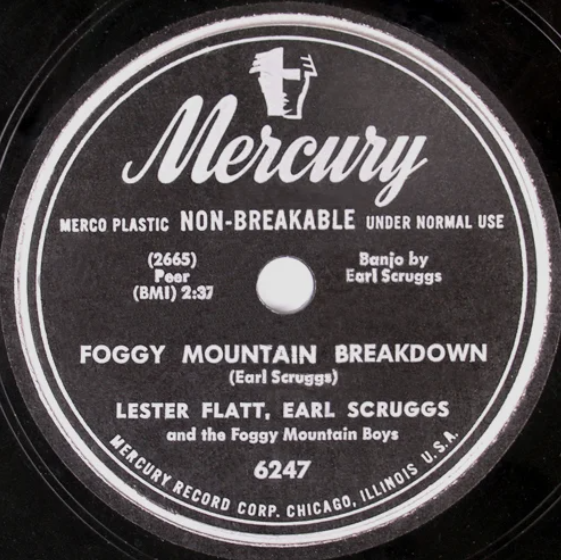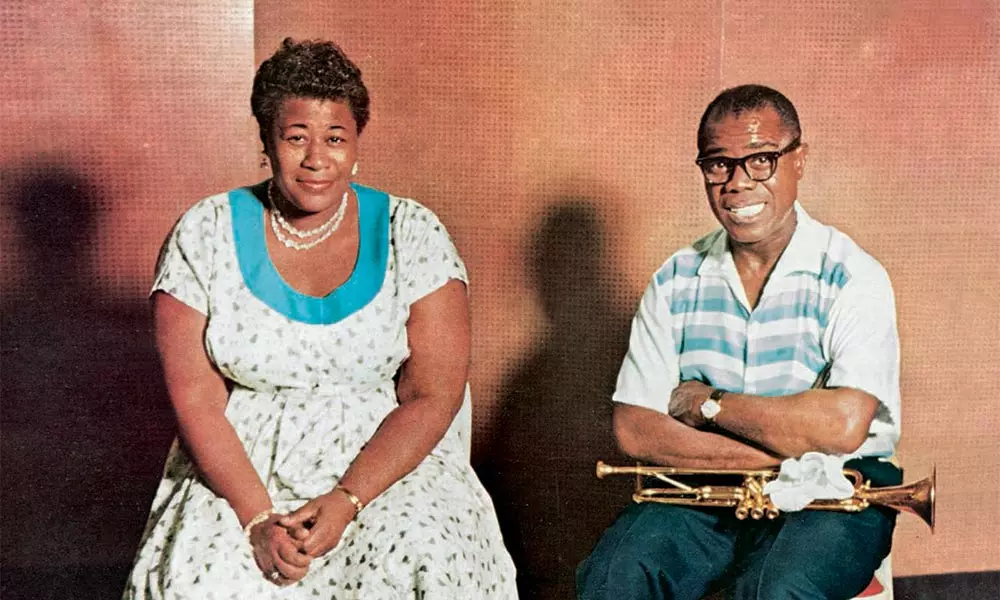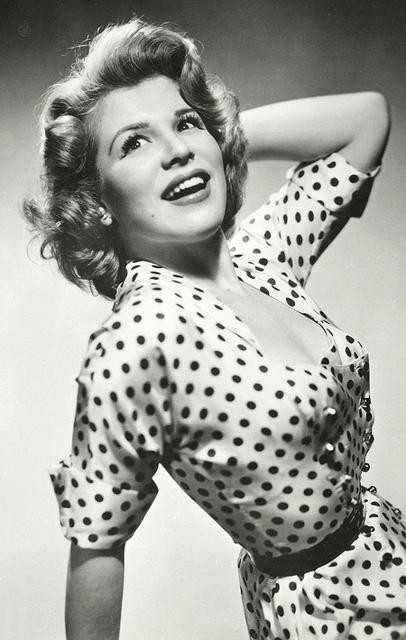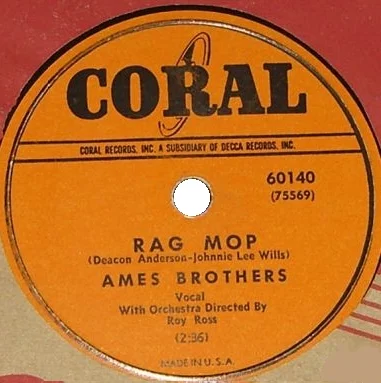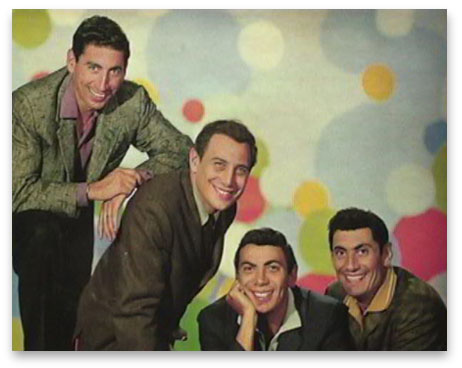Foggy Mountain Breakdown / No Mother or Dad - Flatt & Scruggs
A-side: Foggy Mountain Breakdown
Now, this is one uncontrollable motherfucker! This was not just the speediest song around in the early '50s, this was one of the speediest songs ever recorded. Seriously, I don't think Slayer or Minor Threat ever played as effortlessly fast as Earl Scruggs here, redefining the use of the banjo entirely by plucking those poor, battered-down strings at a monstrous pace. Hell, this thing is so fast that I'm not really sure the average Joe can dance to it anymore!
Yet, don't let its comedic uses in Western chase scenes fool you, this is not a crude attempt at playing fast for the sake of it. There is an impressive level of fluency in how Scruggs cranks out the notes in a breakdown fashion, and the song never loses direction due to the smooth fiddle notes anchoring the groove down. The real achievement here is that, even at this frantic pace, each and every note is kept sonically rich and sharp. That's what makes the effect so unbelievably annihilating: when he kicks the power on, so many ultra-charged notes are launched at your face that you barely have time to process what is happening. Flatt & Scruggs very and truly invented a whole new genre here, proving to be influential to generations of bluegrass artists (it did make it onto May The Circle Be Unbroken after all) and even the future rock 'n' roll scene.
Detractors could argue that this style of playing is quite limited, and that's quite true: if you hear their album Foggy Mountain Jamboree, they had as much wiggle room with this style as Ramones did with theirs (maybe even less since Ramones could at least use their vocal hooks to their advantage). However, if you give both styles the time they deserve, they will surely endear themselves to you and, eventually, you'll begin to notice that there is a lot to explore within these limited means. So cheers to this kickass masterpiece of an instrumental, and let's hope it endures as a staple for bluegrass bands to come.
B-side: No Mother or Dad
I like this one! The grit of Earl's banjo mixing with the fiddle gives the song a rich sound and far removes it from the overly clean-cut forms of the genre. Along with that, the boys are obviously taking heavy cues from Hank Williams, especially with the way he would use elongated phrasings to extract a tragic feel. I wouldn't say this song is a classic (the song is, after all, a typical country song with some elements of creativity), but it is pretty darn enjoyable, especially if you need a break from the head-spinning chaos of the A-side.
Verdict: Essential listening
Although I try to stay away from the country bashing done by many ignorant folks, I do often find it hard to enjoy most country music unless it maintains some edgy elements (unless it's Jimmie Rodgers or something). This single, however, is a prime example of music from the genre that is timeless because it dares to take large risks that pay off enormously due to the sheer passion and artistic drive required to even begin to play like this. It's a really beautiful moment when you watch the famous music video of them playing "Foggy Mountain Breakdown" with company, where you can feel how excited everyone is to be there celebrating this landmark instrumental. It's rare that songs like this feel so alive and vital, and there's loads of that spirit to be found here. So what are you waiting for? Go hear this single and get the jolt of your life!
